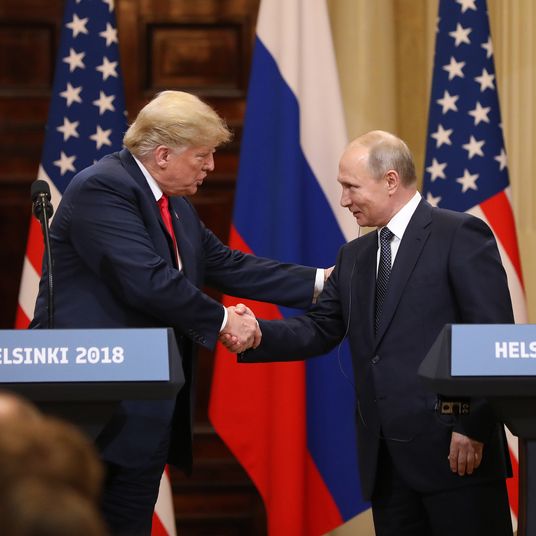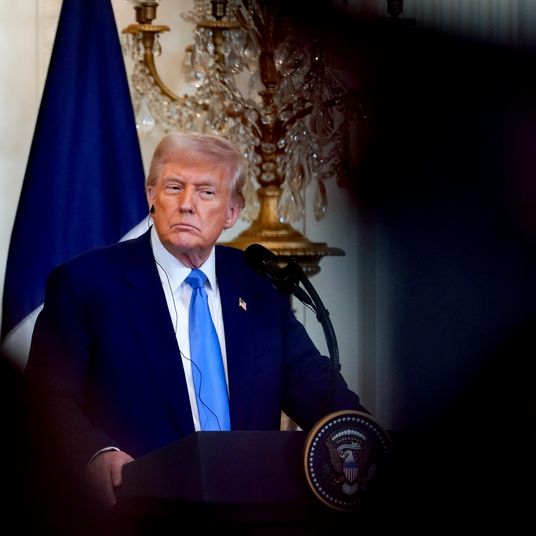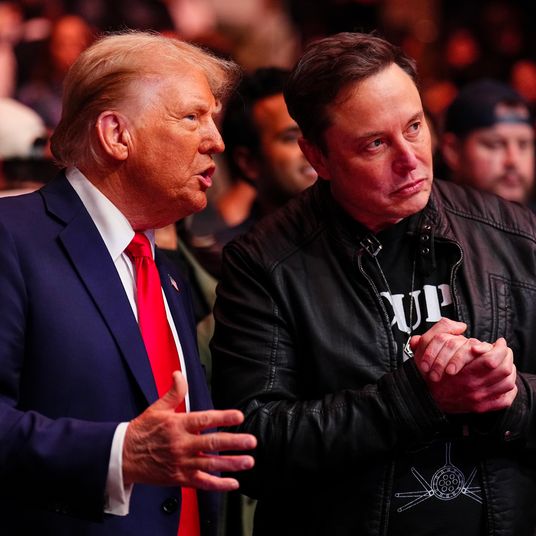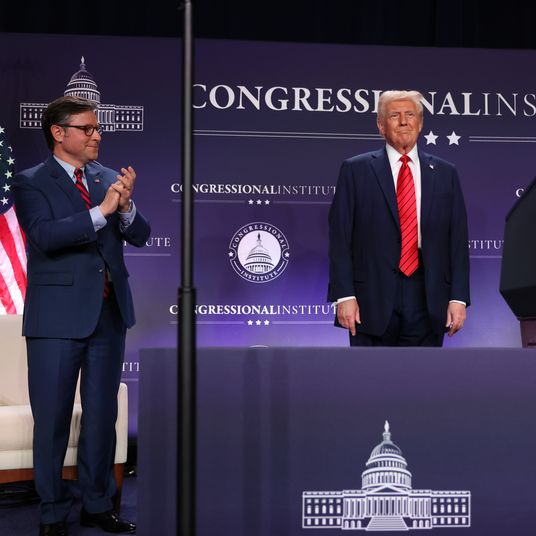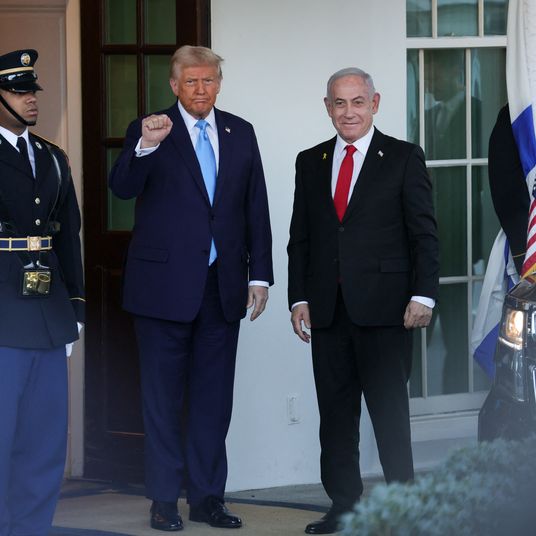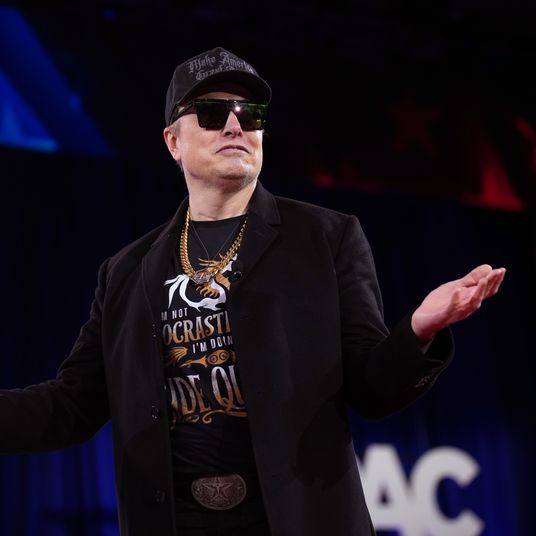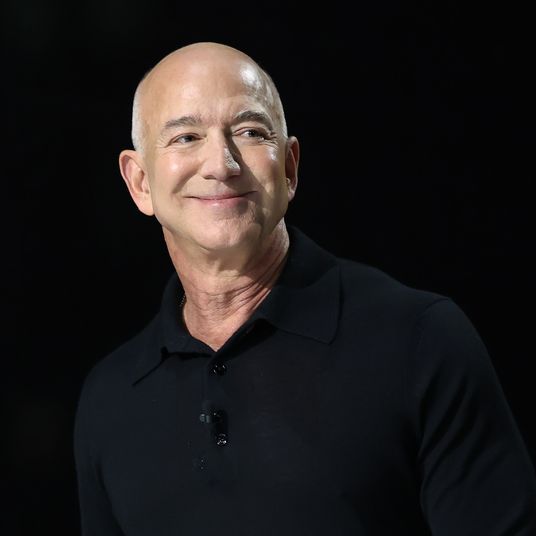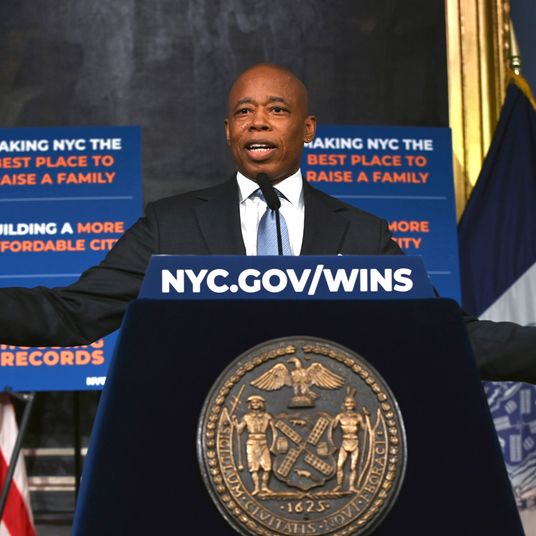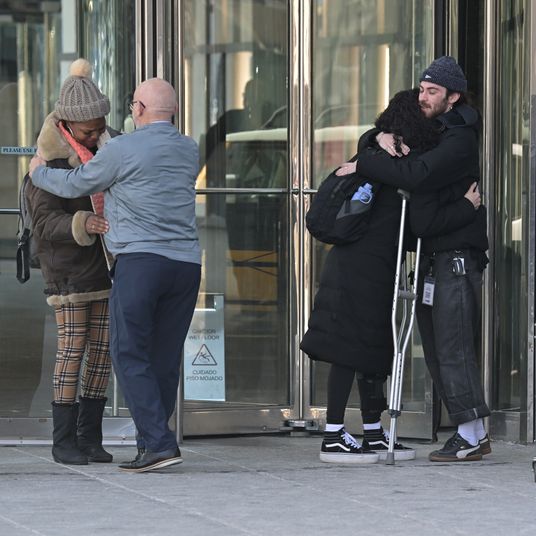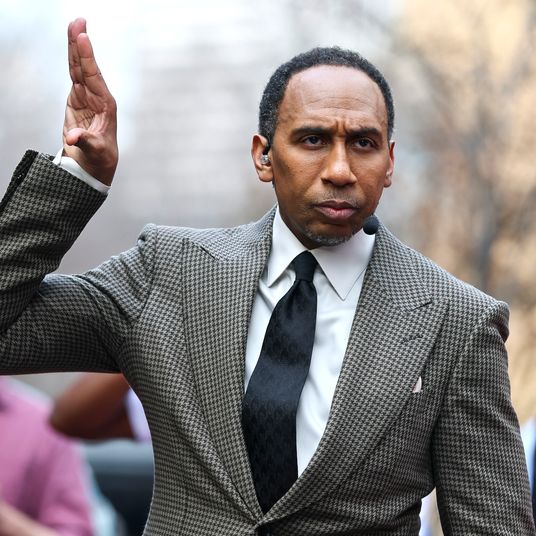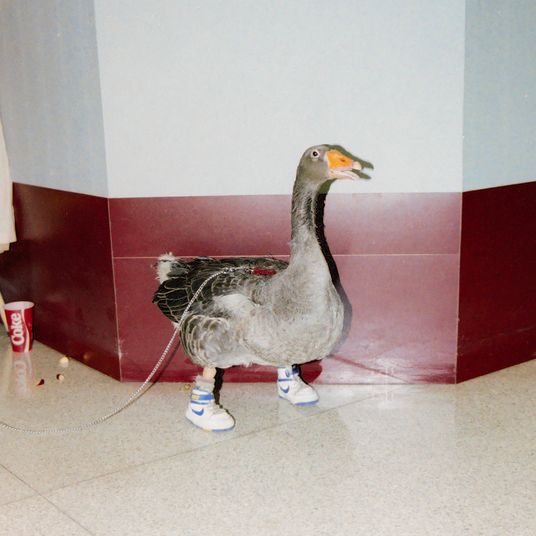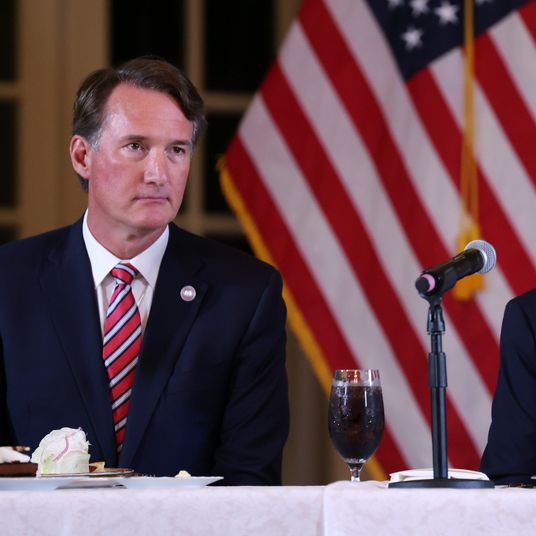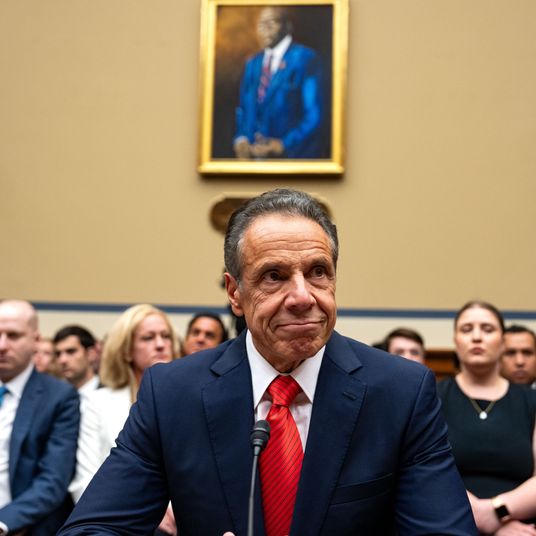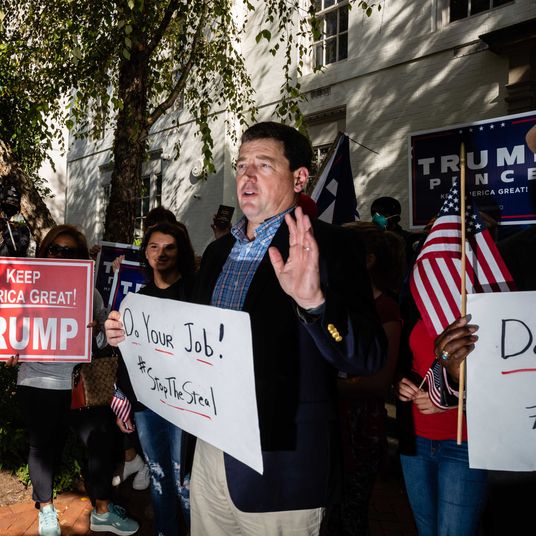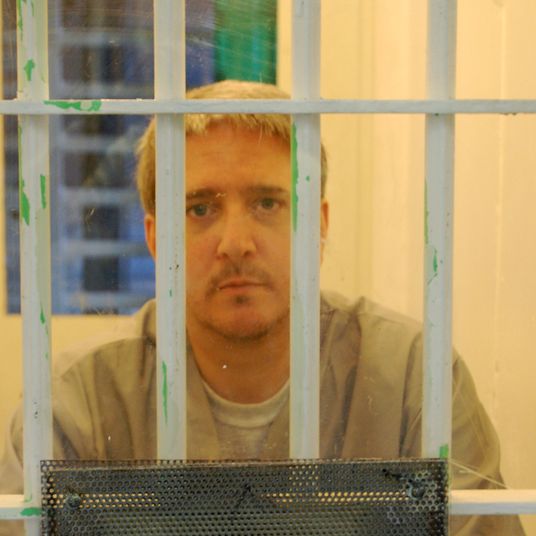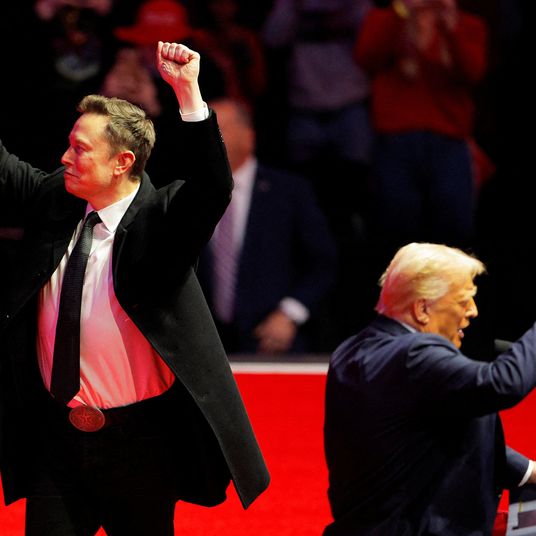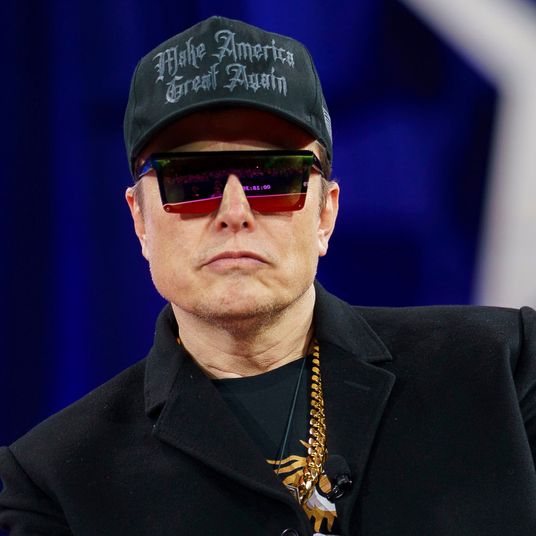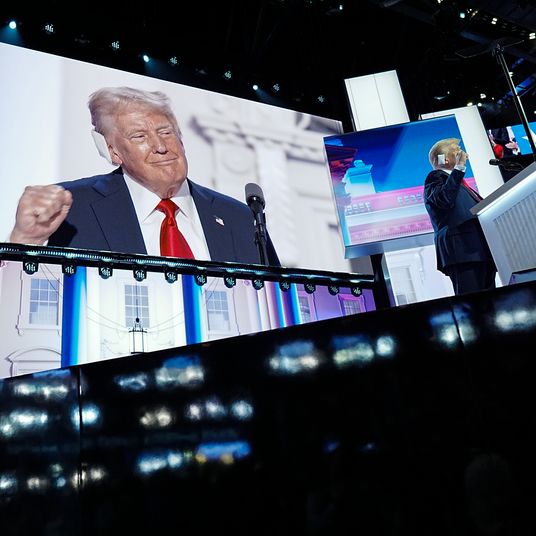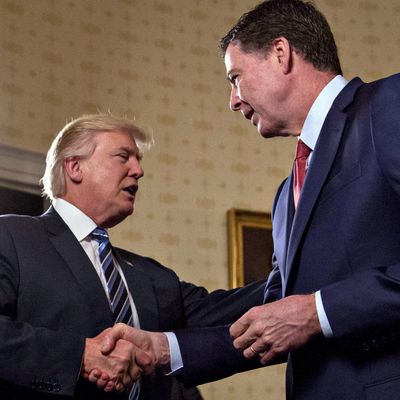
Former FBI Director James Comey has been telling the world about his harrowing encounters with President Trump, who repeatedly demanded his personal loyalty, implored him to stop investigating Michael Flynn, and then dispatched his personal bodyguard to fire him when he failed to comply. But what if we have the story backwards? What if Trump, an innocent family business operator, naïve to the ways of Washington, had been accosted by a scheming, predatory deep state operator? And what if Comey’s firing was a defensive measure against his nefarious trap? This is the scenario Trump’s defenders now envision, and have laid out in columns by The Federalist’s Mollie Hemingway and the Washington Examiner’s Byron York.
Hemingway proposes a simple account of Comey’s interactions with Trump: The FBI director was setting up the president by laying a pretext for a media ambush. “Newly released memos written by former FBI director James Comey indicate that an early 2017 briefing for then-President-elect Donald Trump about the contents of an infamous dossier was held so it could be leaked to media outlets eager to report on the dossier’s allegations,” she writes, faux-authoritatively.
Hemingway’s theory is that CNN had the Steele dossier, and could not cover it unless it had a news hook to do so. Comey’s meeting was designed to be the hook. He would tell Trump about the dossier, and then leak the fact that he told Trump to the news media, which “provided them the very news hook they sought and needed” to report on the dossier.
If you read the CNN report on the dossier that Hemingway describes, though, literally the first sentence describes the fact that President Obama was briefed on the dossier before Trump was told about it: “Classified documents presented last week to President Obama and President-elect Trump included allegations that Russian operatives claim to have compromising personal and financial information about Mr. Trump, multiple US officials with direct knowledge of the briefings tell CNN.” And then, if you go a few paragraphs down in the CNN story, you learn that the dossier’s allegations were also “mentioned in classified briefings for congressional leaders last year.”
So CNN knew Congress had been briefed on the dossier in 2017. And it also knew Obama had been briefed on the dossier. Hemingway’s theory is that CNN would not have reported either of these facts without the additional revelation that Trump had also been briefed on the dossier.
I have an extremely hard time believing CNN would refuse to run a story revealing for the first time that there was a dossier of explosive allegations against the president-elect that had been shared with both Congress and the president of the United States, because they needed the additional information that the president-elect had also been briefed in order to run it. And I really don’t see why Hemingway, who has long been convinced CNN hates Trump and smears him routinely, would believe it would be so reticent. But that’s her theory. CNN wanted to report on the dossier, but somehow could not do it until it had a third confirmed instance of it being discussed by government officials. And this need was so great that the conspirators sent Comey in to mention it to Trump, to set off this trap.
York’s analysis is different than Hemmingway’s, but possibly even less plausible. York argues that Trump’s request for loyalty was not an attempt to suborn the FBI into an instrument of his personal control, but instead a defensive and completely reasonable response to what looked like Comey blackmailing him. “It seems entirely reasonable for a president to wonder what was going on,” he concludes of the pee tape debriefing, “and whether the FBI director was loyal, not to the president personally, but to the confidentiality that is required in his role as head of the nation’s chief investigative agency.”
This analysis obviously omits a massive amount of context: Trump asking Comey specifically to let off Michael Flynn (who, at the time, was the only official known to be under investigation for his Russian ties); Trump’s months and months of attempting to control multiple aspects of the Department of Justice, including demands that it investigate his opponents; and indeed Trump’s long-standing belief that the Department of Justice has always been and always should be a weapon to protect the president’s interests. To believe Trump’s demand for “loyalty” was anything other than an insistence that the FBI protect his interests requires ignoring everything Trump’s said and done about this subject for his entire career.
What’s more, if it’s true, as York says, that Trump’s demand for loyalty was merely merely an innocuous request that Comey not leak anything hostile to him, why didn’t Trump say this himself? Indeed, why has he spent a year denying he ever said this at all? As soon as Comey reported having been asked for loyalty in 2017, the White House insisted no such words were ever uttered. As recently as this week, Trump has been claiming, “I never asked Comey for Personal Loyalty.” York has produced an alibi on Trump’s behalf that Trump never thought to use himself over all these months.
The easiest way to see through these defenses is to imagine the alternative. Suppose that Comey decided not to tell Trump about the Steele dossier, even though its findings had been taken seriously by U.S. intelligence, and both Congress and the former president had already been briefed on it. Would Trump’s defenders today be holding up Comey’s silence as evidence that he did the right thing by withholding this information from the new president? Would they see it as a point in Comey’s favor, evidence that he really did have a good faith interest in helping Trump? No, of course not. The backlash would be far worse. They would be charging Comey with having participated in the deep state conspiracy by keeping Trump in the dark about the investigation that posed such a serious threat.







